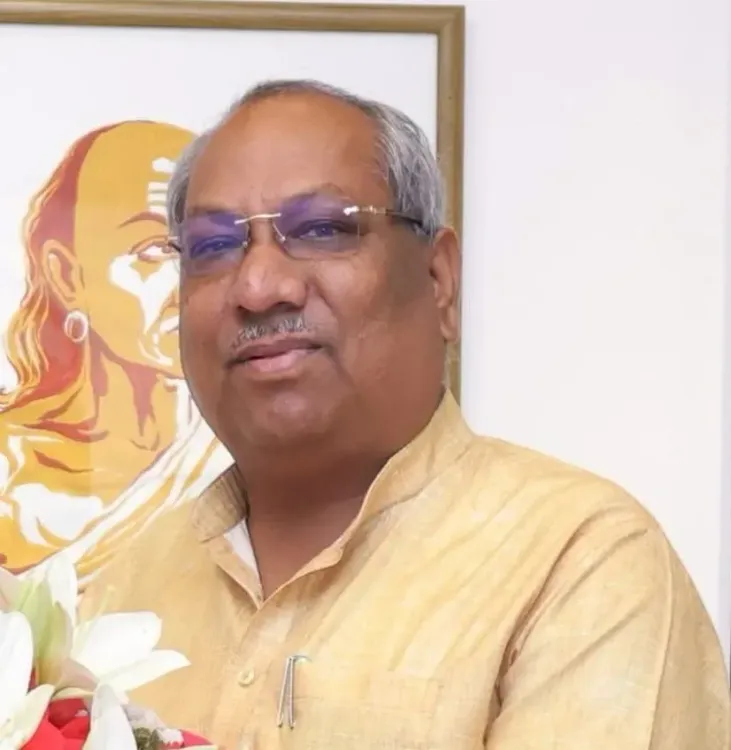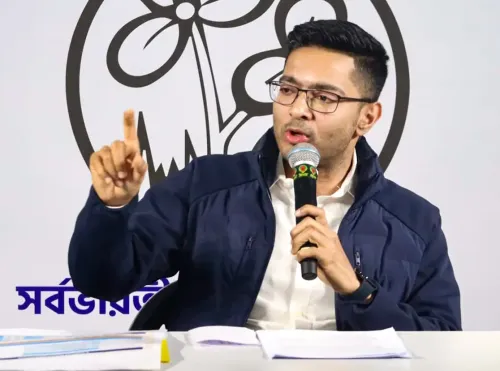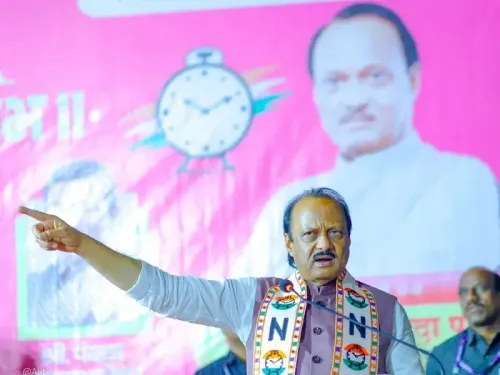Are Those in Power in Karnataka Responsible for the Bengaluru Stampede?

Synopsis
Key Takeaways
- Public safety is a government responsibility.
- Accountability for lapses in safety measures is crucial.
- Large events require meticulous planning to prevent chaos.
- The government must uphold democratic principles to protect citizens.
- Civic duty involves serving the community effectively.
Lucknow, June 6 (NationPress) Uttar Pradesh Cabinet Minister and Nishad Party president Sanjay Kumar Nishad expressed his views on the suspension of the Bengaluru City Police Commissioner along with several senior officials following the devastating stampede near Chinnaswamy Stadium, which resulted in the loss of 11 lives.
He pointed out that safeguarding public safety is the core duty of the government and its administration.
“If they neglect this responsibility, then suitable measures must be taken against them,” Nishad asserted.
The incident occurred during celebrations for the victory of Royal Challengers Bengaluru in the IPL. A massive crowd had gathered at the venue, leading to a dangerous level of overcrowding and disorder.
Following the incident, the police initiated legal actions against RCB, the event management company DNA, and the Karnataka State Cricket Association (KSCA).
Karnataka Chief Minister Siddaramaiah instructed the police to detain representatives from all three entities.
In an interview with IANS, Sanjay Nishad stated, "In a democracy, it is the government's duty to ensure adequate arrangements for public safety. There are four essential pillars of democracy, and the executive is one of them, designed to uphold the safety and dignity of the citizens. That’s why officials are compensated with public resources - their role is to serve the community. If someone holds power, they must also assume the duty of protecting the populace. If they falter, consequences are warranted."
Nishad also commented on recent statements made by RSS chief Mohan Bhagwat, who labeled Pakistan as “two-faced,” stating that as long as the ideology of a two-nation theory exists, the risk of terrorism will persist.
“Pakistan was founded with aspirations for peace. However, after realizing they couldn't win a conventional war, Pakistan resorted to proxy wars, terrorism, and the strategy of a thousand cuts. Today, war has evolved - drones are now employed,” Bhagwat noted.
Responding, Sanjay Nishad said, “The inhabitants of Pakistan were once part of India. They were assured that Pakistan would be a land of purity. Now, they endure suffering and illness due to helplessness. They remain our kin. The genuine issue lies within their leadership, which has been largely authoritarian. I hope one day, the people of Pakistan can reunite with India and coexist peacefully. Observe the Muslims in India - they contribute to development and harmony, with no communal unrest.”
Nishad further reacted to another statement from Bhagwat, who claimed that coerced or incentivized conversions are a form of violence, while reintegrating tribals into Hinduism is a corrective action.
“There are two categories of religious conversions. One happens when individuals are drawn to the positive aspects of another religion, and the other occurs due to illiteracy and poverty, where the vulnerable are exploited. Over the past 70 years, especially under this administration, both poverty and illiteracy have diminished. There exists no superior culture than Indian culture," he concluded.










